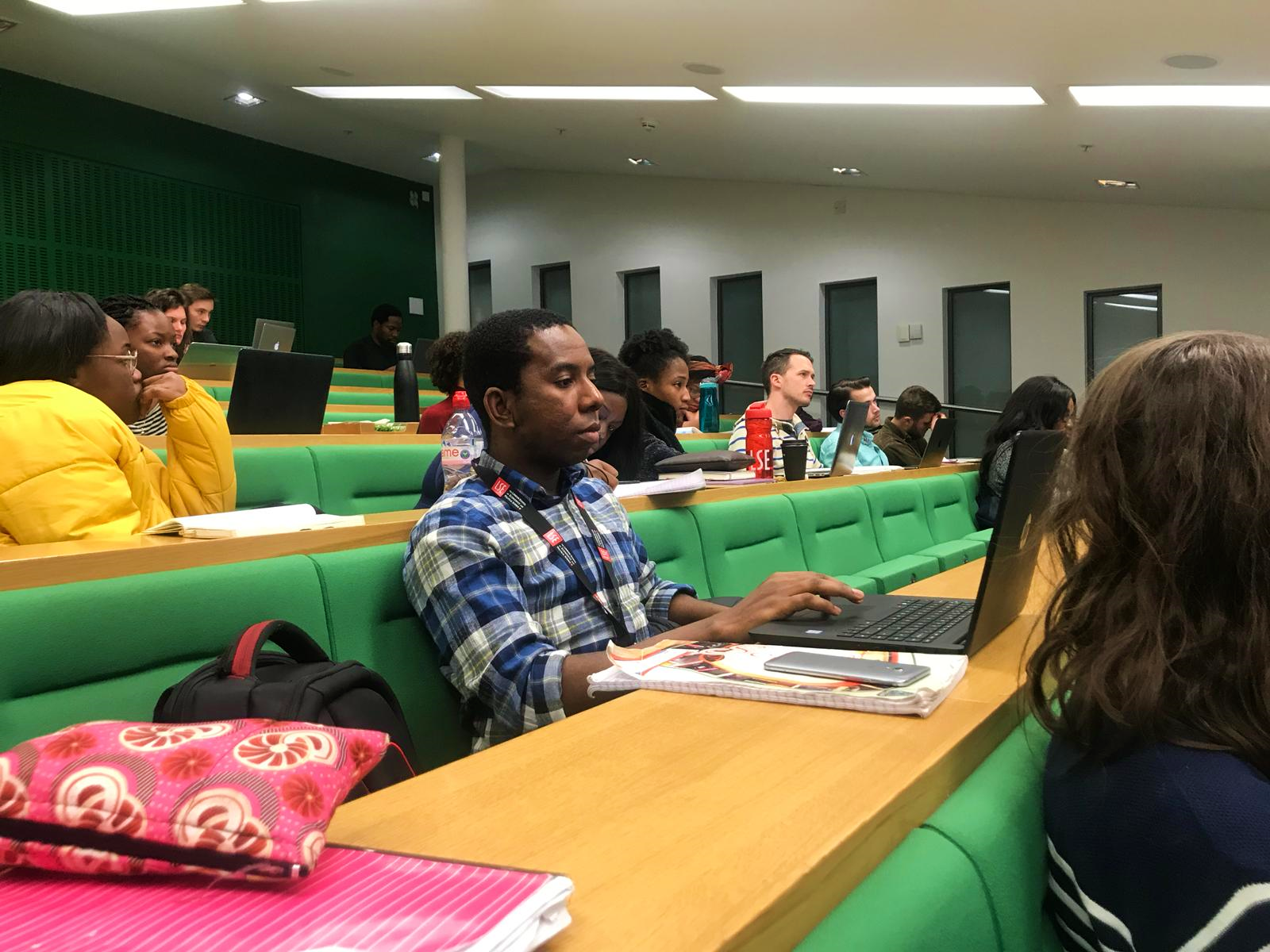
#LectureLife – My Top 10 Tips on Note Taking During Lectures
Being a grad student is a lot of work with endless lectures, readings, essays, reports and presentations. But if you think studying is stressful, try ignorance! For those of us curious about “knowing the causes of things,” in line with the LSE motto, ignorance is not an option.
So, we are impelled to soak in as much knowledge as possible, grabbing as much as we can the torrent of information thrown at us. Here are some handy tips on pinning down the crucial points during lectures.
1. You can’t write down every word
A lecture is not a dictation exercise where you have to write down everything the professor says. You need to watch out for key points, arguments and themes in the lectures. It's a good thing that lectures are recorded at LSE, so you can always go back and check if you missed a point.
2. Pay Attention
It's very easy to start daydreaming during lectures and miss an important point. Try to rest adequately before lectures so you don't doze off in class. Some take coffee before lectures to keep them alert, others chew gum. Listen attentively to examples given by the professor to explain a point. Sometimes the example helps us remember the point in future.
3. Underline, Highlight and Capitalise
Lecturers often stress or draw attention to certain words or phrases. It is important to underline/highlight these words on your notepad to show how important they are. It might also be useful to start using these terms in your group discussions in order to get familiar with them.
4. Use Shorthand (Abbreviations)
In order to catch up, some words need to be written in short but in understandable forms. So, take some time to work out whatever shorthand code you're comfortable with. For example words like using ‘2' instead of ‘to', ‘too' and ‘two', or ‘da' for ‘the'; ‘w/' for ‘with', btw for ‘between’, etc.
5. Put distractions away
It might be a good idea to turn off your Wifi during lectures to avoid receiving distracting messages on WhatsApp or Facebook. Don't forget to put your mobile phone on silent mode, and don't use headphones or earpieces!
6. Be Comfortable
Ensure that you are punctual to your lectures and choose a convenient spot to sit. Students are often put off when their favourite corner of the lecture hall has already been taken. Choose a spot that makes you comfortable and feel part of the lecture. For me, I prefer the second or third row. I often find it difficult to concentrate at the backseats. They remind me of those noisy backbenchers in high school who chuckled and contrived pranks to be used on teachers and fellow students!
7. Ask questions when confused
Don't just write down things you do not understand. Ask for clarification when you are confused. If you're not satisfied, you can always meet the lecturer for further clarification during breaks, after the lecture or during Office Hours.
8. Share and compare notes with classmates
Two heads according to the popular adage are better than one. It is good to find time to compare notes with your classmates and use theirs to update yours and vice versa. They might have picked up some important points that you didn’t.
9. Notepad versus Laptop
There has been a heated debate on which of these two is most effective for note-taking during lectures. Some argue that notepads are old-fashioned and others contend that laptops are distracting. For me, it depends on the individual. I started with notepads and “migrated” to my laptop. It depends on which you find more effective. However, I still use my notepad in some lectures. The point here is to use what works for you.
10. Air your opinion
Lectures are not always one-sided. There are times lecturers throw questions to students or ask for reactions. Don’t be left out. Discuss how the subject matter relates to what you have heard or seen before and your personal opinion about it. The seminars and classes also give more room for personal reflection on the subject matter. They facilitate critical analysis and thrash matters arising from the lecture. Here you can even critique the lecture and offer you own argument. “A lecture”, as George Wald rightly points out, “is much more of a dialogue than many of you probably realise”.
Written by LSE Social Media Ambassador Victor Agboga